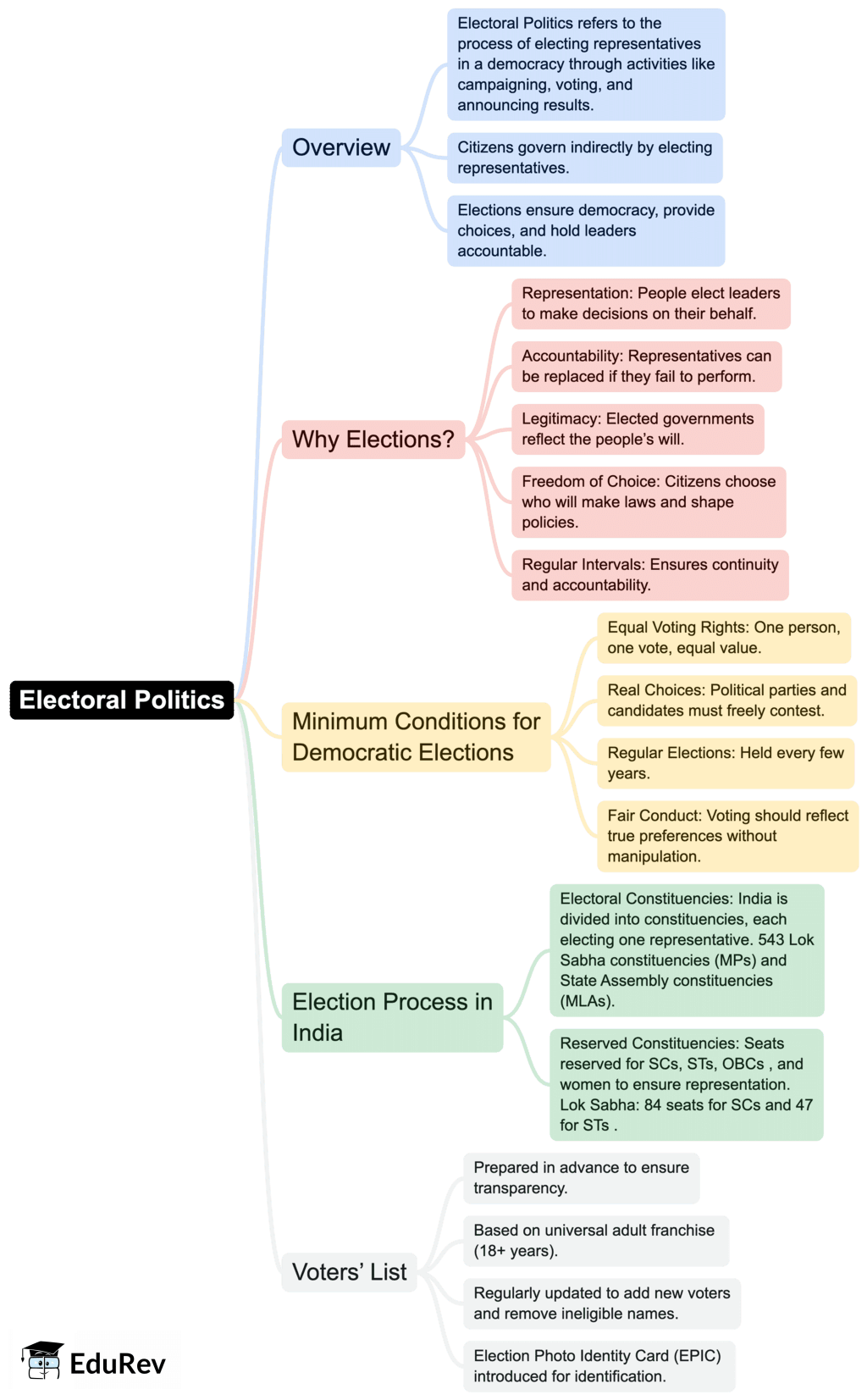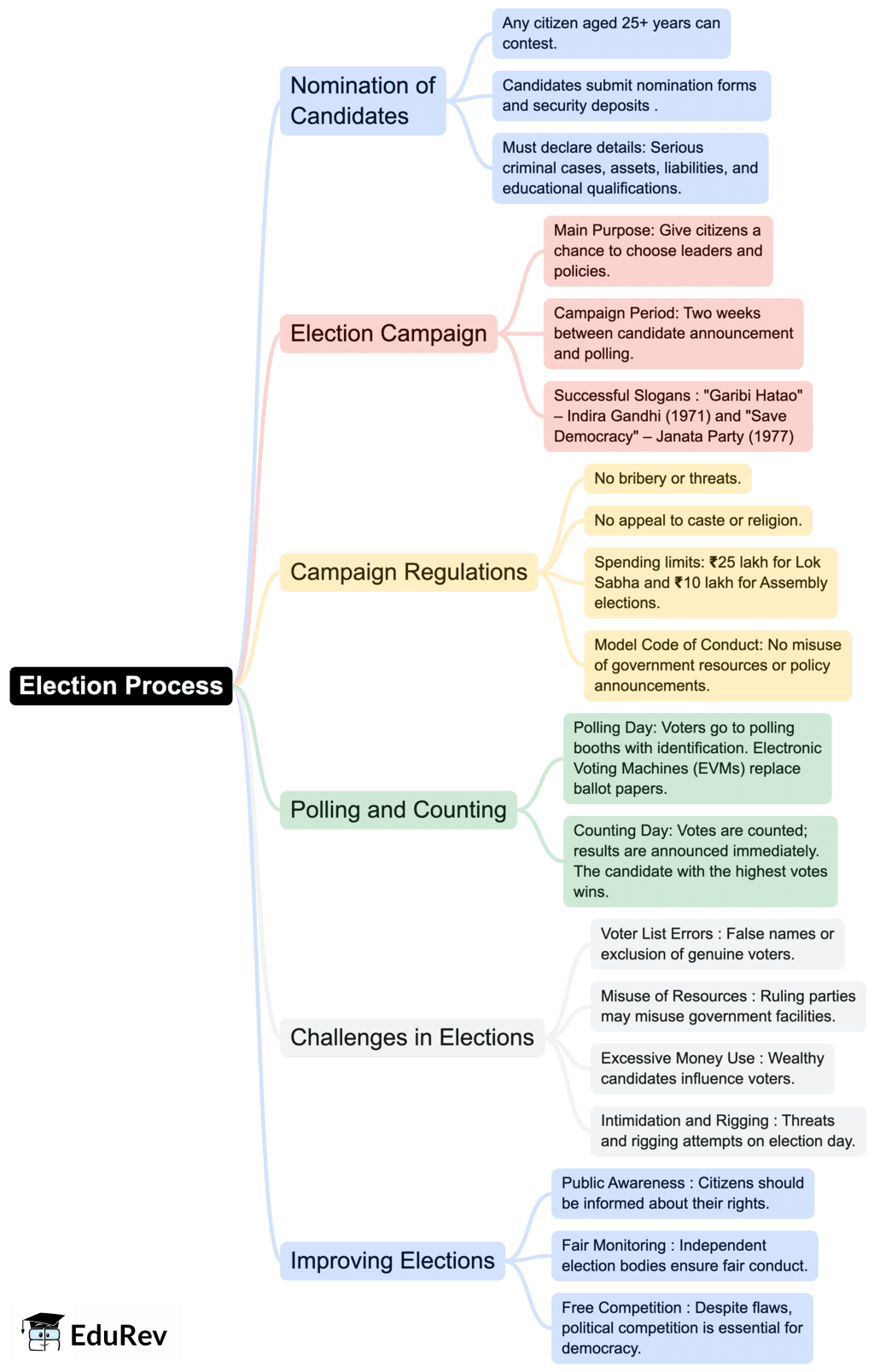Class 9 Exam > Class 9 Notes > Social Studies (SST) Class 9 > Mind Map: Electoral Politics
Mind Map: Electoral Politics | Social Studies (SST) Class 9 PDF Download


The document Mind Map: Electoral Politics | Social Studies (SST) Class 9 is a part of the Class 9 Course Social Studies (SST) Class 9.
All you need of Class 9 at this link: Class 9
|
55 videos|525 docs|78 tests
|
FAQs on Mind Map: Electoral Politics - Social Studies (SST) Class 9
| 1. What is electoral politics and why is it important in a democratic system? |  |
Ans.Electoral politics refers to the processes and activities associated with the selection of representatives in a democratic framework. It involves the organization of elections, campaigning, and the voting process. Electoral politics is crucial because it enables citizens to exercise their right to choose their leaders and influence government policies. It fosters accountability, representation, and participation, thereby strengthening the democratic values of a society.
| 2. What are the key components of an election? |  |
Ans.The key components of an election include the electoral body, candidates, political parties, voters, and the electoral process itself. The electoral body is responsible for overseeing the election, ensuring its fairness and transparency. Candidates represent different political parties or may run as independents. Political parties organize and promote their candidates, while voters are the citizens who participate in the election by casting their votes. The electoral process encompasses all activities from the announcement of the election to the declaration of results.
| 3. How do political parties influence electoral politics? |  |
Ans.Political parties play a significant role in electoral politics by shaping the political landscape and influencing voter choices. They develop party platforms that outline their policies and ideologies, mobilize supporters, and organize campaigns to promote their candidates. Parties also provide a framework for political debate and discussion, making it easier for voters to understand their options. Additionally, they help to structure the voting process by presenting a slate of candidates to the electorate.
| 4. What are the types of electoral systems used around the world? |  |
Ans.There are several types of electoral systems used globally, including:
1. <b>First-Past-The-Post</b>: The candidate with the most votes wins, commonly used in single-member districts.
2. <b>Proportional Representation</b>: Seats are allocated based on the percentage of votes each party receives, used in multi-member districts.
3. <b>Mixed Systems</b>: Combines elements of both first-past-the-post and proportional representation.
4. <b>Ranked Choice Voting</b>: Voters rank candidates in order of preference, and votes are redistributed until a candidate achieves a majority.
Each system has its advantages and disadvantages, impacting representation and voter engagement.
| 5. What are the challenges faced in electoral politics? |  |
Ans.Electoral politics faces several challenges, including voter apathy, electoral fraud, and the influence of money in politics. Voter apathy refers to the lack of interest or motivation among citizens to participate in elections, which can lead to low turnout rates. Electoral fraud, such as ballot tampering or voter suppression, undermines the integrity of elections. Additionally, the significant financial resources needed for campaigning can create an uneven playing field, favoring candidates with access to wealth over those who may represent the interests of less affluent voters.
Related Searches
















